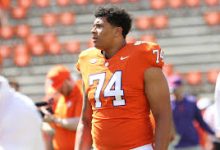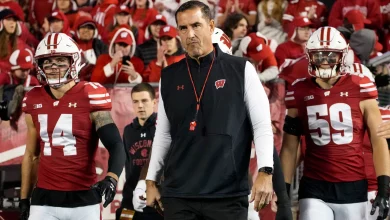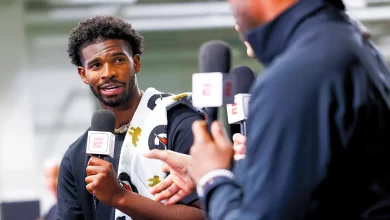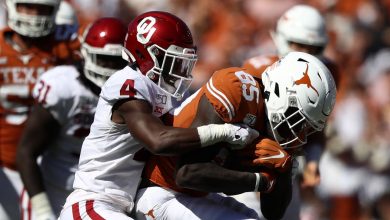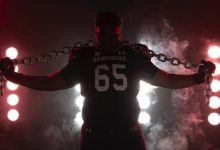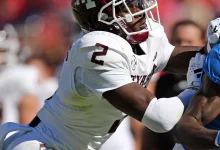Hugh Freeze admits it’s ‘hard to feel great’ about Auburn’s 2026 recruiting class so far
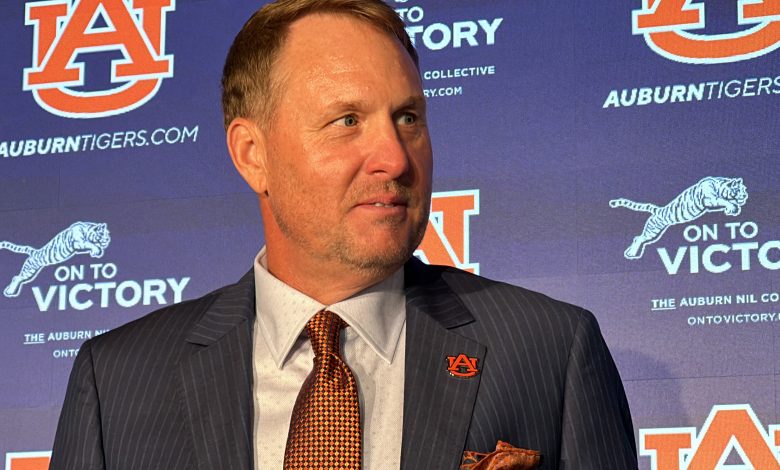
In what can only be described as a candid admission, Auburn head coach Hugh Freeze acknowledged that it’s been challenging to feel optimistic about the Tigers’ 2026 recruiting class thus far. In a recent press conference, Freeze, known for his straightforwardness and candid demeanor, spoke openly about the realities of building a competitive recruiting class in the modern era of college football. His remarks underscored the complex and often unpredictable nature of recruiting in today’s NIL-driven environment, where top-tier talent often gravitates toward the highest-paying programs.
With college football recruiting now as much about branding, relationships, and financial offers as it is about development and fit, Freeze’s honesty about his concerns reflects the pressures that have intensified for head coaches in recent years. For Auburn, a program with rich traditions and a loyal fan base, the ability to secure top-tier recruits is crucial for returning the Tigers to national relevance. However, as Freeze admitted, the road ahead isn’t as clear-cut as many may have hoped.
As Freeze enters his second full season as head coach of Auburn, he is well aware of the tectonic shifts occurring in college football recruiting. The introduction of the NIL (Name, Image, and Likeness) system has completely altered the dynamics of recruitment, creating an environment where financial incentives are just as important—if not more important—than the traditional factors like academic reputation, program success, and historical coaching prowess. As a result, schools with large boosters and lucrative sponsorships are often seen as the primary beneficiaries of this new landscape, leaving programs like Auburn, which aren’t typically known for massive NIL pools, in a difficult position.
The 2026 class represents an especially crucial group for Freeze and his staff, as they look to bolster the roster with young, talented players capable of making an immediate impact in the SEC. Auburn has been underperforming in recent seasons, and much of the program’s future success rests on the ability to land high-caliber recruits who can help the Tigers return to SEC contention. But Freeze made it clear that, as of now, Auburn hasn’t been able to secure the level of commitment from recruits that he would have hoped.
The inherent unpredictability of the recruiting process isn’t a new phenomenon, but the degree to which NIL has shaped it is. With top recruits receiving offers that could total millions of dollars, it’s become increasingly difficult for programs like Auburn to compete against schools that can match or exceed those figures. This reality has led to frustration among coaches, including Freeze, who is used to building success with a mix of talent and development rather than solely relying on financial incentives.
“I’m not going to sit here and tell you that I feel great about our class right now,” Freeze said, his tone reflecting a blend of realism and determination. “We’re still working hard, but the reality is, we’re not getting the same kind of traction with some of the top recruits that I’d like to see. NIL is part of it. The landscape of college football recruiting has changed dramatically, and it’s hard to feel great about a class when you’re not in the running for the kind of players you need to build a championship program.”
Despite Freeze’s best efforts, Auburn has found itself playing catch-up in the race for some of the most coveted recruits in the 2026 cycle. The program has traditionally relied on strong regional ties to high school talent in Alabama and the surrounding areas. However, with NIL deals becoming a central factor in recruiting, the playing field has leveled in some ways and tilted in others. Programs like Texas A&M, Georgia, and Alabama, which boast deep pockets, can offer players deals worth millions of dollars before they even step onto campus. This has caused many top-tier recruits to take offers based on the financial promise rather than the fit of a program.
For Freeze, this is an especially difficult reality. As someone who prides himself on creating a family-like atmosphere within his teams, Freeze is committed to building a culture of development and discipline. But in the current recruiting climate, that focus on growth and fit often takes a back seat to the immediate financial incentives that come with the growing prominence of NIL deals.
The challenge for Freeze and Auburn isn’t a lack of effort or a failure to identify top talent—it’s the inability to match the offers made by larger, wealthier programs. Freeze pointed out that while Auburn has been competitive in offering NIL opportunities, they’re often overshadowed by schools with seemingly endless resources. “We’re competing against schools that can throw money at these kids,” he explained. “Some of these other programs just have more firepower when it comes to NIL, and that’s a reality we’re dealing with. It’s frustrating, but we’re not backing down. We’re going to keep fighting.”
As a result, Auburn’s 2026 class has struggled to land commitments from the players that Freeze and his staff have prioritized. It’s not just about the money, of course. Auburn is still a prestigious program with a history of success in the SEC, and it remains an attractive option for players seeking the opportunity to compete at the highest level. But the stark reality is that, without the same financial backing as some of the other programs, Auburn is finding it increasingly difficult to close on the top-tier recruits.
While Freeze has expressed his frustration, he also made it clear that he’s not ready to throw in the towel. As one of the more experienced coaches in the SEC, Freeze understands that recruiting success isn’t always about landing the biggest names—it’s about finding players who fit into the system and who are ready to buy into the program’s culture. He’s confident that Auburn can still succeed in recruiting, but it will require a shift in how the Tigers approach their efforts.
One area in which Auburn is looking to differentiate itself is in its emphasis on player development. Freeze has made it clear that the Tigers’ coaching staff is committed to helping players grow both on and off the field, focusing not just on winning games but on preparing players for life after football. Auburn’s commitment to academics, personal growth, and development could be a selling point for players who are interested in more than just financial gain.
“Money is important, sure,” Freeze said. “But for some kids, the opportunity to get developed as both a player and a person is just as important. We’re not going to sit here and pretend that NIL doesn’t matter, but we also believe in our ability to develop players and help them achieve their dreams, both in football and in life.”
Auburn has also placed an increased focus on building relationships with recruits and their families. While NIL offers might be hard to compete with, Freeze believes that personal connections and a sense of belonging are powerful motivators for recruits. The Tigers’ coaching staff has been hitting the recruiting trail hard, focusing on building rapport with high school coaches and players, and showing that Auburn is a place where athletes can grow and excel.
“We’ve got to be strategic,” Freeze said. “We know that NIL is a factor, but it’s not the only factor. We’re going to continue working hard to get the right kind of players who buy into what we’re trying to build here. It’s going to take time, but I’m confident we’ll get it right.”
Freeze’s admission about Auburn’s recruiting struggles comes against the backdrop of a rapidly changing landscape in college football. As more programs use NIL to their advantage, the pressure to keep up with the financial arms race becomes more intense. For Auburn, a school with a proud history but limited resources compared to some of its SEC rivals, the challenge of competing in this new era of recruiting is daunting.
However, Freeze’s experience and philosophy could be exactly what Auburn needs to rise above the noise. While NIL will continue to play a significant role in college football recruitment, Freeze’s focus on relationships, player development, and building a program that stands for something greater than just money could resonate with recruits who want to be part of something lasting and meaningful. In a world where college athletics are increasingly shaped by financial considerations, Freeze’s commitment to staying true to the program’s values offers a refreshing contrast to the flashy, money-driven environment that has overtaken much of the recruiting process.
For Auburn fans, the frustration surrounding recruiting in 2026 is understandable, especially given the program’s ambitious goals under Freeze. But while the current recruiting cycle may not be shaping up as hoped, there is still time for the Tigers to land key players who fit the system. It’s clear that Freeze and his staff are committed to making Auburn a competitive program in the SEC once again—and, despite the challenges, there is plenty of reason to believe that Freeze can turn things around.
The 2026 recruiting class may not be the one that defines Auburn’s future, but it will serve as an important learning experience as Freeze continues to build his vision for the Tigers. The landscape may be shifting, but Auburn’s commitment to development, relationships, and tradition could be the very qualities that separate it from the NIL-fueled programs that seem to dominate the recruiting world today.


